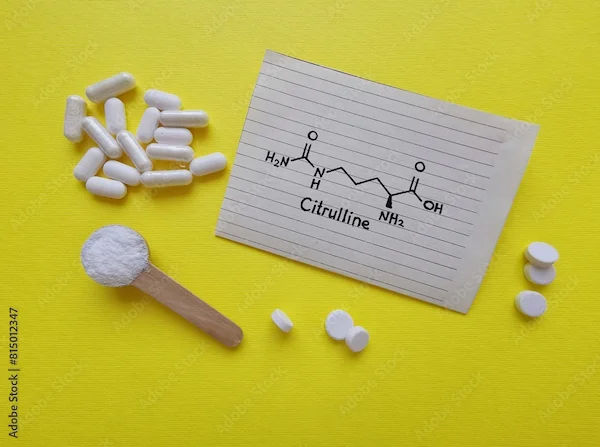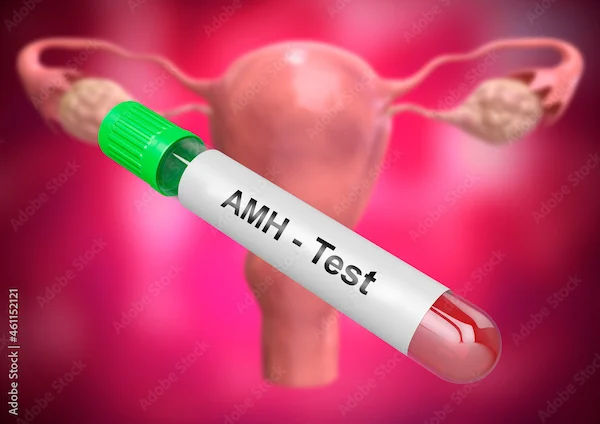How to Reduce Cortisol Levels In Body?
Discover simple, natural ways to reduce high cortisol levels in your body. Learn how stress, sleep, diet, and lifestyle changes can help restore hormonal balance and improve overall health.

Written by Dr.Sonia Bhatt
Last updated on 3rd Jul, 2025

Introduction
Cortisol, often called the "stress hormone," plays a crucial role in our body. It helps regulate metabolism, blood pressure, and immune response, and it’s essential for our fight-or-flight response. However, when cortisol levels remain high for too long, it can negatively impact your health, leading to issues like weight gain, anxiety, sleep problems, and even chronic diseases.
The good news is that there are simple, natural ways to lower cortisol levels and improve your overall well-being. In this article, we’ll explore what cortisol is, why high levels are harmful, and practical steps you can take to bring it back to a healthy range.
Understanding Cortisol
Cortisol is produced by the adrenal glands, which sit on top of your kidneys. It helps your body respond to stress, but it also regulates:
Blood sugar levels
Inflammation
Memory formation
Salt and water balance
Blood pressure
While short-term cortisol spikes are normal (like during a stressful event), chronic stress keeps cortisol levels elevated, which can harm your health over time.
Signs of High Cortisol Levels
If your cortisol levels are too high for too long, you may experience:
Weight gain, especially around the abdomen
Fatigue and low energy
Difficulty sleeping or insomnia
Anxiety or irritability
High blood pressure
Weakened immune system (frequent illnesses)
Digestive problems
If you notice these symptoms, it might be time to take steps to lower your cortisol levels.
Consult Top Experts for Your Symptoms
How to Reduce Cortisol Naturally?
Managing cortisol levels naturally involves consistent lifestyle changes. Here’s how you can start:
1. Manage Stress Effectively
Since stress is the main trigger for cortisol, managing it is key. Try:
Deep breathing exercises – Slow, deep breaths activate the relaxation response.
Meditation or mindfulness – Even 10 minutes a day can help lower stress.
Yoga or gentle stretching – These practices combine movement with relaxation.
Spending time in nature – A walk in the park can reduce stress hormones.
2. Prioritise Sleep
Poor sleep increases cortisol. To improve sleep quality:
Maintain a regular sleep schedule.
Avoid caffeine and screens before bedtime.
Make your bedroom cool, dark, and quiet.
Use calming pre-bedtime routines like reading or listening to calming music.
3. Exercise Moderately
While intense workouts can temporarily raise cortisol, moderate exercise like walking, swimming, or cycling helps lower it over time. Aim for 30 minutes of movement most days. Avoid overtraining, which can actually increase cortisol.
4. Eat a Balanced Diet
Certain foods help regulate cortisol:
Complex carbs – Foods like whole grains and sweet potatoes stabilise blood sugar.
Omega-3 fatty acids – Found in fish, flaxseeds, and walnuts help reduce inflammation.
Probiotic-rich foods – Yoghurt, kefir, and sauerkraut support gut health, which is linked to stress.
Dark chocolate (in moderation) – It contains antioxidants that can help lower cortisol.
Stay hydrated – Drink plenty of water throughout the day since dehydration can increase cortisol.
Avoid excessive caffeine, sugar, and processed foods, as they can spike cortisol.
5. Connect with Loved Ones
Strong social connections lower cortisol and enhance emotional well-being. Spend time with family, friends, or pets, or join a community group. The actions can release oxytocin—a hormone that naturally reduces stress.
6. Limit Alcohol and Avoid Smoking
Both alcohol and nicotine can raise cortisol levels and disrupt your body’s stress response. Alcohol affects sleep and hormone regulation, while nicotine increases stress over time despite offering short-term relief. Reducing or quitting both supports better sleep, mood, and overall cortisol balance.
7. Try Relaxation Techniques
Simple daily practices can help keep cortisol under control:
Progressive muscle relaxation – Tensing and relaxing muscles one by one to relax.
Aromatherapy – Scents like lavender or chamomile can be calming.
Journaling – Writing down thoughts can reduce anxiety and improve clarity.
8. Consider Supplements (After Consulting a Doctor)
Some supplements may help, but always check with a healthcare provider first:
Ashwagandha – An adaptogenic herb that helps your body handle stress
Magnesium – Supports muscle relaxation and sleep.
Vitamin C – May reduce cortisol during high-stress periods.
When to Seek Help
If lifestyle changes don’t help, or if you experience severe symptoms, like extreme fatigue, rapid weight changes, or depression, consult a doctor. They may recommend blood tests to check cortisol levels and rule out conditions like adrenal gland disorders or Cushing’s syndrome and suggest further treatment.
Assess Your Stress Levels
Final Thoughts
High cortisol levels can take a toll on your health, but small, consistent changes can make a big difference. By managing stress, improving sleep, eating well, and staying active, you can bring your cortisol levels back into balance.
If you’re struggling with chronic stress or related symptoms, consider booking a consultation with a healthcare expert on Apollo 24|7. They can provide personalised advice and support to help you feel your best.
Consult Top Endocrinologists
Consult Top Experts for Your Symptoms

Dr. Nithin Reddy Modhugu
Endocrinologist
6 Years • MBBS, MD (General Medicine), DNB (Endocrinology)
Hyderabad
Dr. Nithin's Endocrine Clinic, Hyderabad
(100+ Patients)

Dr. Gayatri S
Endocrinologist
4 Years • Suggested Qualifictaion- MBBS, MD (Internal Medicine), DM (ENDOCRINOLOGY)
Nellore
Narayana hospital, Nellore

Dr. Shiva Madan
Endocrinologist
10 Years • MBBS , MD (General medicine) , DM (Endocrinology)
Bikaner
Sushma diabetes and Endocrine center, Bikaner
(25+ Patients)

Dr. Venkata Rakesh Chintala
Endocrinologist
8 Years • MBBS,MD( GEN MEDICINE), DM ( ENDOCRINOLOGY)
Krishna district
Sanjeevani Hospital, Krishna district

Dr. Arunava Ghosh
General Physician/ Internal Medicine Specialist
9 Years • MBBS,MD(GENL.MED.),DM(ENDOCRINOLOGY)
Kolkata
VDC Clinic, Kolkata
Consult Top Endocrinologists

Dr. Nithin Reddy Modhugu
Endocrinologist
6 Years • MBBS, MD (General Medicine), DNB (Endocrinology)
Hyderabad
Dr. Nithin's Endocrine Clinic, Hyderabad
(100+ Patients)

Dr. Gayatri S
Endocrinologist
4 Years • Suggested Qualifictaion- MBBS, MD (Internal Medicine), DM (ENDOCRINOLOGY)
Nellore
Narayana hospital, Nellore

Dr. Shiva Madan
Endocrinologist
10 Years • MBBS , MD (General medicine) , DM (Endocrinology)
Bikaner
Sushma diabetes and Endocrine center, Bikaner
(25+ Patients)

Dr. Venkata Rakesh Chintala
Endocrinologist
8 Years • MBBS,MD( GEN MEDICINE), DM ( ENDOCRINOLOGY)
Krishna district
Sanjeevani Hospital, Krishna district

Dr. Arunava Ghosh
General Physician/ Internal Medicine Specialist
9 Years • MBBS,MD(GENL.MED.),DM(ENDOCRINOLOGY)
Kolkata
VDC Clinic, Kolkata


